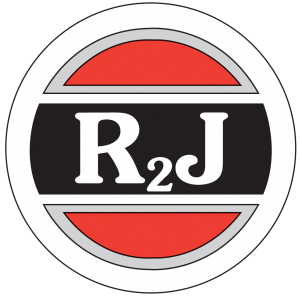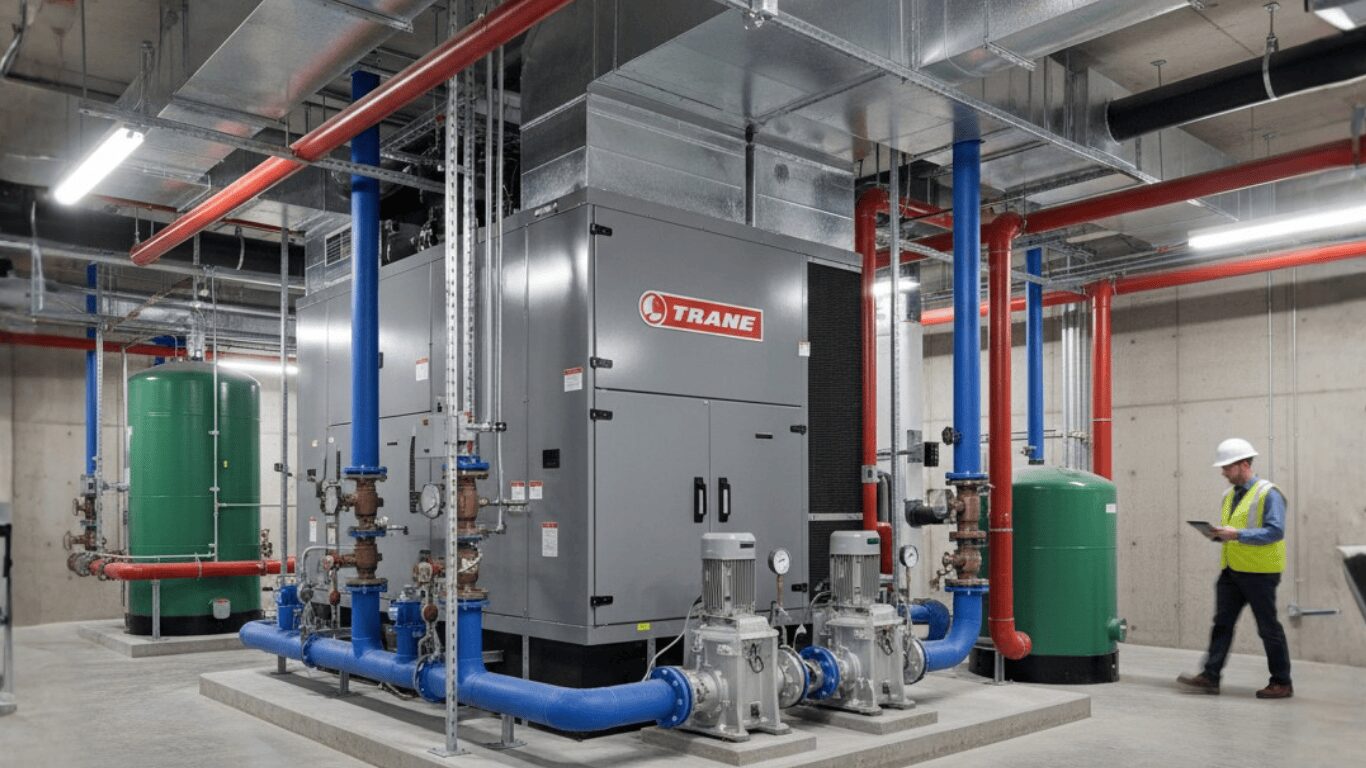Why HVAC Water Treatment Matters for Every Facility
May 02, 2023If you’ve worked around HVAC systems long enough, you start to see how much water quality can make or break performance. We’ve seen systems lose efficiency fast simply because the water wasn’t treated properly.
In this article, we’ll look at why HVAC water treatment matters, what common water-related issues to watch for, and how the right approach keeps your system reliable and efficient for years.
How Water Quality Shapes HVAC System Performance
Water is the lifeblood of your HVAC system. When its quality drops, performance follows. Even small shifts in water chemistry can trigger bigger issues. Each of these adds stress to pumps, chillers, and coils, forcing them to work harder than they should.
Why Water Quality Matters
- Scale formation reduces heat transfer efficiency, making systems use more energy.
- Corrosion weakens metal surfaces and leads to leaks or costly replacements.
- Fouling and debris restrict flow, driving up energy use and maintenance costs.
Teams that monitor water chemistry closely often notice the difference right away. Clear, well-treated water helps maintain stable temperatures, lower maintenance costs, and smoother operation across the system. Keeping water quality in check is one of the simplest ways to protect both performance and efficiency.
Common Water-Related Issues in HVAC Systems
Even with regular checks, HVAC systems are always exposed to water-related risks. Over time, minerals, organic material, and microorganisms settle into the system, changing the way water behaves and interacts with metal surfaces.
1. Scale Formation
Scale is one of the most common issues in any HVAC system. It forms when minerals like calcium and magnesium precipitate out of the water and attach to heat transfer surfaces. This thin, hard layer acts as insulation, trapping heat and forcing equipment to consume more energy.
2. Corrosion and Pitting
Corrosion slowly eats away at pipes, valves, and coils, and in severe cases leads to pitting corrosion that compromises structural integrity. Its rates increase when oxygen, salts, or acidic compounds accumulate in the system. Without proper water treatment, even closed loops can suffer from hidden corrosion that shortens equipment life.
3. Microbial and Organic Growth
Microbial growth and biofilms thrive in stagnant or poorly treated water. They contribute to fouling, reduce heat transfer, and create under-deposit corrosion. Organic material, such as leaves or debris drawn into cooling towers, worsens these conditions by feeding microbial activity.
Early signs of these problems often show up as reduced flow, uneven cooling, or rising energy consumption. For more insight into identifying these warning signs early, check out our guide on warning signs of commercial HVAC failure.
Inside Closed Loop Systems
Closed loop systems are often viewed as low-maintenance, but that can be misleading. Because the same water circulates continuously, any contamination or imbalance in treatment chemicals stays trapped within the loop.
Why Closed Loop Water Treatment Matters
Closed loop water treatment helps prevent corrosion and fouling before they have the chance to damage your equipment. Teams should regularly test water quality, adjust inhibitors, and ensure that corrosion control levels remain stable. Even minor fluctuations in chemical concentration can speed up metal deterioration and reduce system efficiency.
Filtration and Freeze Protection
Good filtration is essential. Filters catch suspended solids and debris before they can settle into pipes or coils. Systems in colder climates also need adequate freeze protection. Glycol or other antifreeze additives must be maintained at the right concentration to avoid damage during cold spells.
Flushing and Preventive Steps
Loops should be flushed during major repairs or chemical changes to remove old deposits and restore clean circulation. If you’d like to understand how proper control methods support these systems, review our overview on closed loop control systems.
Proper Treatment and Maintenance Practices
Even the best-designed HVAC systems need consistent attention. Water treatment isn’t a one-time process. It’s an ongoing balance of chemistry, monitoring, and preventive care. The goal is to keep water stable and equipment protected year-round.
Setting the Right Treatment Levels
Proper treatment starts with accurate testing. Operators should regularly check pH, conductivity, and inhibitor concentration to confirm that control limits are met. Skipping routine tests or chemical adjustments allows corrosion and scale to form unnoticed, slowly reducing system performance.
Maintaining the Chemical Feed System
Chemical feed systems are the backbone of any effective treatment program. They deliver precise chemical doses that control corrosion, scaling, and biological growth. When feed pumps or control sensors fail, it often leads to chemical underfeed or overfeed; both of which cause costly issues. If you’d like to see how these systems work in more detail, take a look at our guide on chemical feed systems.
Routine Inspections and Documentation
Teams should keep a consistent log of water quality test results, treatment adjustments, and inspection findings. This documentation helps identify trends early and allows for timely corrections. Proper maintenance not only ensures reliability but also extends equipment life and keeps overall maintenance costs under control.
Benefits of Consistent HVAC Water Treatment
Consistent HVAC water treatment is one of the smartest investments a facility can make. When water quality stays within proper limits, every part of the system benefits, may it be heat exchangers or pumps and valves. It’s not just about cleaner water; it’s about long-term reliability.
The Key Benefits
- Longer equipment life – Stable water chemistry slows corrosion, prevents scale buildup, and protects critical components.
- Improved efficiency – Clean surfaces transfer heat more effectively, helping chillers and boilers operate at peak performance.
- Lower maintenance costs – With fewer breakdowns, teams spend less on emergency repairs and replacement parts.
- Sustainability and savings – Efficient systems use less energy and water, aligning with sustainability goals and reducing overall operating costs.
When treatment is consistent, systems run smoothly, last longer, and require less intervention. Over time, the savings in energy and maintenance easily outweigh the effort it takes to maintain proper control.
Building a Smarter Water Treatment Strategy
Strong HVAC performance starts with consistency. Systems that receive regular testing and balanced chemical control rarely face major breakdowns. The neglected ones, on the other hand, tend to show it. Corrosion, scale, leaks, and high energy use are all signs that treatment has slipped.
Steps Toward a Better Program
- Test regularly – Keep a log of results to spot early changes in water chemistry.
- Review treatment limits – Confirm that chemical inhibitors, pH, and conductivity stay within target ranges.
- Flush and filter – Remove debris and suspended solids that can cause fouling or corrosion.
- Document everything – Maintenance records help teams identify recurring issues and make informed adjustments.
Every facility’s water system behaves a little differently. What works for one may not suit another. Taking time to review system performance and tailor the approach to your building goes a long way toward reliability and long-term efficiency.
Your HVAC system deserves more than guesswork. Partner with us to build a treatment strategy that safeguards performance, efficiency, and long-term sustainability.
Frequently Asked Questions (FAQs)
How often should HVAC water systems be cleaned?
Regular cleaning depends on system load and water conditions, but most commercial systems benefit from inspection and cleaning at least twice a year. Keeping filters and strainers clear of debris helps prevent fouling and ensures steady performance.
What causes biological growth in HVAC systems?
Biological growth forms when warm water, nutrients, and poor circulation create ideal conditions for microorganisms. Using the right biocide and maintaining clean, treated water prevents this from taking hold.
Can chlorine be used for HVAC water treatment?
Chlorine is sometimes used in open systems like cooling towers, but concentration levels must be carefully controlled to avoid corrosion or material damage. It’s best applied as part of a monitored treatment plan.
What’s the role of filtration in HVAC water treatment?
Filtration removes suspended solids and contaminants before they settle in pipes or coils. Proper filtration keeps systems clean, improves efficiency, and extends component life across both heating and cooling systems.
Why is proper water treatment so important for commercial facilities?
Water treatment protects against corrosion, scale, and contamination that shorten equipment life and raise operational costs. For any facility, maintaining balanced water chemistry is critical to keeping HVAC systems reliable, efficient, and sustainable.


